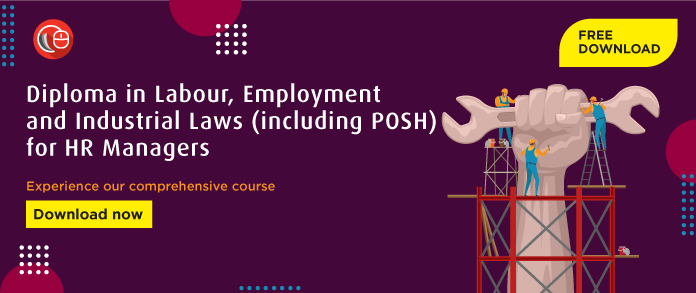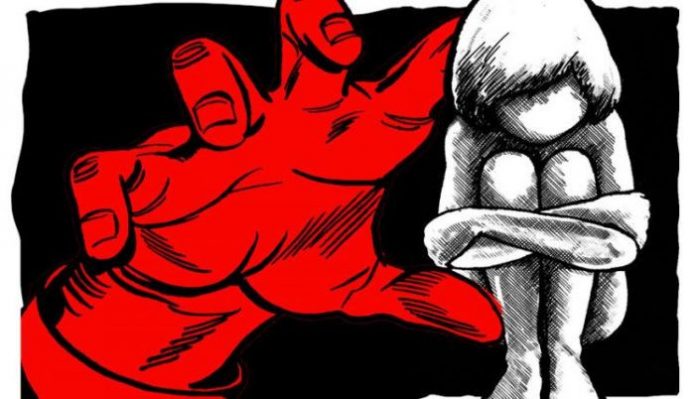This article has been written by Oishika Banerji of Amity Law School, Kolkata. This article provides a list of landmark judgments under the POCSO Act, 2012.
Table of Contents
Introduction
The POCSO Act, enacted in 2012, is a gender-neutral statute that recognizes a child as someone under the age of 18. The Indian Penal Code, 1860 does not recognize that sexual assault can be committed on boys as well. The Act of 2012 has a broad spectrum definition of what constitutes a sexual offence against a child. It further expands the definition of sexual assault to cover both non-penetrative and aggravated penetrative sexual assault (Sections 3–10) and is also inclusive of penalties for those in positions of trust, such as public workers, educational personnel, and police officers.
The POCSO Act also established measures to make the criminal justice system more child-friendly and to prevent re-traumatization. This includes everything from how the statement of the child should be recorded, to the medical examination, to the designation of special child-friendly courts. In this article, the reader will get familiar with some of the landmark judgments under the POCSO Act, 2012 which will help them to get an idea regarding the implementation of the aforementioned statute.
Landmark judgments under POCSO Act, 2012
Some of the recent and most relevant landmark decisions made with respect to the POCSO Act, 2012 have been laid down hereunder.
Attorney General for India v. Satish and another (2021)
The Bombay High Court’s Nagpur Bench had ruled in the case of Satish Ragde v. State of Maharashtra (2021) that grabbing a child’s breasts without making “skin-to-skin contact” constituted molestation under the POCSO Act, 2021. The comment was given by a single bench led by Justice Pushpa Ganediwala. The Attorney General of India, the National Commission for Women, and the State of Maharashtra filed appeals against the High Court’s controversial decision, which were heard by a bench consisting of Justices Uday Umesh Lalit, S Ravindra Bhat, and Bela M Trivedi, in the present case of Attorney General for India versus Satish and another (2021).
The issue at hand was how should Section 7 of the POCSO Act, 2012 be interpreted so as to provide a fair and reasonable solution to the cases falling under its ambit. The present judgment observed that Section 7 covers both direct and indirect touch thereby highlighting that the logic in the High Court’s opinion quite insensitively trivializes indeed legitimizes a whole spectrum of undesirable behavior which undermines a child’s dignity and autonomy, through unwelcome intrusions.
Setting aside the Bombay High Court’s judgment, the Apex Court observed that the matter at hand would be an appropriate situation for using the “mischief rule” of statutory interpretation. It emphasizes that courts must constantly interpret the law in order to prevent harm and promote the remedy. In this view, the top court’s judgment observed that the High Court’s interpretation not only restricts the implementation of the legislation but also seeks to pervert its objective.
Jarnail Singh v. State of Haryana (2013)
The Supreme Court of India while deciding the case of Jarnail Singh v. State of Haryana (2013) has observed that the procedure which is used to determine the age of a child who is in conflict with law as have been provided by the Juvenile Justice (Care and Protection of Children) Rules, 2007, can be followed in cases falling under POCSO Act, 2012 as well. In the present case, the appellant was accused of kidnapping and raping the daughter of one Savitri Devi, when her daughter was sleeping. The Apex Court observed that Rule 12 of the erstwhile Juvenile Justice (Care and Protection of Children) Rules, 2007, which detailed the age determination process for children in conflict with the law should be applied to determine the age of a child victim. Applying the same, the Court convicted the appellant, Jarnail Singh.
Alakh Alok Srivastava v. Union of India and Others (2018)
In the case of Alakh Alok Srivastava v. Union of India and Others (2018), the Supreme Court of India laid down guidelines to be followed by Special Courts while trying a case under the POCSO Act, 2012 so that the trial is completed within a period of one year from the date of taking cognizance of the offence, as provided under Section 35 of the aforementioned Act. The guidelines are provided hereunder:
- The High Courts are responsible for ensuring that cases filed under the POCSO Act are heard and decided by Special Courts and that the presiding officials of such courts are trained in child protection and psychological reaction.
- If not previously done, the Special Courts should be constituted and given the role of dealing with matters brought under the POCSO Act.
- The Special Courts should be given instructions to expedite cases by not granting superfluous adjournments and following the procedure outlined in the POCSO Act, allowing the trial to be completed in a time-bound manner or within a certain time period set forth in the Act.
- The Chief Justices of the High Courts have been asked to form a three-judge committee to control and supervise the progress of the POCSO Act cases. In the event that three judges are not available, the Chief Justices of the respective courts will form a Judge Committee.
- A Special Task Force will be formed by the Director-General of Police or a State authority of comparable rank to guarantee that the investigation is properly handled and witnesses are presented on the dates set before the trial courts.
- The High Courts must take appropriate efforts to create a child-friendly environment in Special Courts, keeping in mind the requirements of the POCSO Act, to ensure that the spirit of the Act is upheld.
Hari Dev Acharya @ Pranavanand and Ors v. State (2021)
The Delhi High Court recently stated in the case of Hari Dev Acharya @ Pranavanand and Ors v. State (2021) that as the Protection of Children from Sexual Offenses (POCSO) Act, 2012 is silent on whether two separate incidents can be combined in a single First Information Report (FIR), the provisions of the Code of Criminal Procedure, 1973 (CrPC) would apply, allowing joint trial if the offences were committed during the same transaction. A single-judge bench of the Hon’ble High Court, Justice Manoj Kumar Ohri, made the remark while dismissing a number of people’s petitions challenging the summons issued by a special POCSO court and the additional charge sheets.
The summons and charge sheets were issued in August 2019 in connection with an incident in which a youngster studying at a Gurukul in Delhi was reportedly raped by a superior. The accused took the youngster to the teacher’s room and sexually attacked him. The boy had then informed his friend about the same. They went to the police station and renewed their complaint, but because his mother and sister had already arrived, a solution was achieved under the pressure of four people. According to Justice Ohri, Section 219 of the CrPC allows a person who commits three similar offences within a twelve-month period to be prosecuted at the same time, and because both offences are punished under the same section of the IPC and POCSO, they constitute the same transaction. Therefore, the summoning orders were upheld and the petitions were dismissed.
State of Karnataka v. Shivanna (2014)
The POCSO Act, 2012 does not require that every statement made under Section 164 of the Criminal Procedure Code, 1973 be recorded. The statement of a victim against whom offences have been committed under Sections 354, 354-A, 354-B, 354-C, 354-D, 376(1), 376(2), 376-A, 376-B, 376-C, 376-D, 376-E, or 509 of the IPC, 1860 should be recorded by a Judicial Magistrate, according to the Section 164(5-A) (a) of the Criminal Law (Amendment) Act, 2013. The statement should be recorded as soon as the commission is brought to the attention of the police, according to Section 164(5-A)(a) Cr.P.C. The Supreme Court of India while deciding the present case of State of Karnataka v. Shivanna (2014) observed that the investigating officer should present the victim before any Metropolitan, ideally Judicial Magistrate within 24 hours of the rape to record the statement under Section 164(5-A)(a) C.r.P.C., preferably to a Lady Magistrate.
Gaya Prasad Pal @ Mukesh v. State (2016)
The present case of Gaya Prasad Pal @ Mukesh v. State (2016) that appeared before the Delhi High Court involved the appellate challenging his conviction for being charged twice because of the same offence. For raping his stepdaughter under the age of 14 and making her pregnant, the man was found guilty of penetrative sexual assault under Section 4 of the Protection of Children from Sexual Offences Act, 2012 (hereafter, POCSO Act) read with Section 376 of the Indian Penal Code. The reason for the delay in filing the FIR was because the child was concerned about her mother and stepbrother’s safety if her stepfather was convicted and sentenced to prison. Separate sentences were imposed on the appellant for offences punishable under Section 376 IPC, Section 6 POCSO Act, Section 354 IPC, and Section 506 IPC. The observations made by the Hon’ble High Court in this present case have been laid down hereunder:
- The trial court did not put the appellant on trial for the offence of aggravated penetrative sexual assault under Section 6 of the POCSO Act. As a result, punishing him for the same offence was unconstitutional.
- In the case of a minor, ‘rape’ (Section 375 IPC) can also be considered ‘penetrative sexual assault’ (Section 3 POCSO Act). Acts that constitute ‘penetrative sexual assault’ against a girl child would also be considered rape. A person may not be punished twice for the same set of actions of conduct or omission that collectively form an offence covered by two separate articles of law. Despite the fact that the law allows for a trial on an alternative charge for both offences, the punishment can only be given for one of them, the one that is more serious.
- Furthermore, the Court noted that the appellant’s conviction for the violation under Section 4 of the POCSO Act is in addition to his conviction for the offence under Section 376 of the IPC. And the appellant’s actions are punishable under Section 376(2) of IPC which provides for a punishment of life imprisonment (imprisonment for the rest of a person’s natural life) as well as a fine, which is more severe than the punishment under Section 4 of the POCSO Act. In this case, Section 42 of the POCSO Act applies, and the Court is required to penalize the offender for the offence under Section 376(2)(f)(i) and (k) of the IPC, which is more serious than the offence under Section 4 of the POCSO Act.
Balaji Sarjerao Kamble v. State of Maharashtra (2017)
The Bombay High Court observed that ‘merely because the date of the crime is not given by the victim, her evidence cannot be disregarded’ in the landmark case of Balaji Sarjerao Kamble v. State of Maharashtra (2017). The child victim was roughly 6 to 8 years old at the time of the alleged rape. At such a young age, the victim is unlikely to have such a keen sense of time, the Court viewed. The decisions of the Hon’ble High Court have been presented hereunder:
- Conviction and sentence of the appellant in the case, for offences punishable under Sections 4 and 8 of the POCSO Act, 2012 and Section 376 of the IPC were held to be maintainable.
- The sentence imposed on the accused of the offence punishable under Section 376 of the IPC was rigorous imprisonment of 7 years as well as direction to pay a fine of Rs.5,000/- and in default of such payment, further rigorous imprisonment for 3 months, was quashed and set aside.

Nipun Saxena v. Union of India (2019)
When an infraction is committed under Section 23 of the POCSO Act, the publisher or owner of the media, studio, or photography facility is held jointly and severally accountable for his employee’s act/omission, observed the Supreme Court of India in a recent case of Nipun Saxena v. Union of India (2019). The Apex Court released a set of guidelines in relation to the aforementioned provision which are provided hereunder:
- No one may broadcast the victim’s name in print, electronic, or social media, or even in a distant way divulge any details that might lead to the victim’s identification and should make her identity known to the general public.
- In cases where the victim is deceased or mentally ill, the victim’s name or identity should not be revealed, even with the consent of the next of kin, unless circumstances justifying the disclosure of her identity exist, which must be decided by the competent authority, which in the present case is the Sessions Judge.
- FIRs for offences under Sections 376, 376-A, 376-AB, 376-B, 376-C, 376-D, 376-DA, 376-DB, or 376-E of the IPC, as well as violations under POCSO, are not to be made public.
- If a victim files an appeal under Section 372 CrPC, the victim is not required to reveal his or her identity, and the appeal will be handled according to the law.
- All papers in which the victim’s identity is exposed should be kept in a sealed cover as much as possible, and these documents should be replaced with similar documents in which the victim’s name is deleted from all records that may be scrutinized in the public domain.
- All authorities to whom the victim’s name is provided by the investigating agency or the Court are likewise obligated to keep the victim’s name and identity secret and not to divulge it in any way except in the report, which should be delivered to the investigating agency or the Court in a sealed envelope.
- An application by the next of kin to authorize the disclosure of the identity of a dead victim or of a victim of unsound mind under Section 228-A(2)(c) IPC should be made only to the Sessions Judge concerned until the Government acts under Section 228-A(1)(c) an lays down criteria as per our directions for identifying such social welfare institutions or organizations.
- In the case of juvenile victims under the POCSO Act, 2012, the Special Court can only allow their identity to be revealed if it is in the child’s best interests.
- All the States and Union Territories are requested to set up at least one ‘One-Stop Centre’ in every district within one year from the date of the judgment of the present case.
Conclusion
The one feature that is common in every judgment that has been discussed is the set of guidelines delivered by the concerned court which will behave as a catalyst for the functioning of the POCSO Act, 2012. The Act of 2012 is social, gender-neutral legislation in the field of criminal law which can be used to its full potential only by the courts when they apply and interpret the provision of the said Act in cases falling within the ambit of the statute. Therefore, decisions made under the Act hold immense relevance.
References
- https://www.shethepeople.tv/home-top-video/judiciary-lays-foundation-pocso-act/.
- https://bhubaneswarcuttackpolice.gov.in/wp-content/uploads/2020/08/POCSO-ACT.pdf.
- https://www.thenewsminute.com/article/what-pocso-act-and-how-it-used-guide-143310.
- https://www.business-standard.com/about/what-is-pocso.
LawSikho has created a telegram group for exchanging legal knowledge, referrals and various opportunities. You can click on this link and join:
https://t.me/joinchat/L9vr7LmS9pJjYTQ9
Follow us on Instagram and subscribe to our YouTube channel for more amazing legal content.
 Serato DJ Crack 2025Serato DJ PRO Crack
Serato DJ Crack 2025Serato DJ PRO Crack










 Allow notifications
Allow notifications


